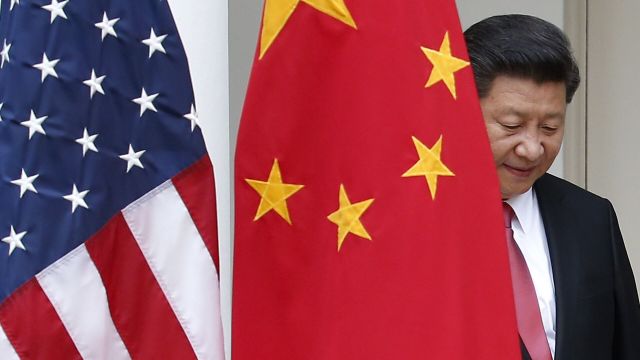MOSCOW, July 11 — RIA Novosti, Natalia Dembinskaya. Beijing has launched a "counteroffensive" in the "chip war" that has flared up, tightening exports of rare earth metals — key for microchips. This is the response of the US and the EU, which have restricted the transfer of technology and the sale of semiconductors. How far the confrontation can go — in the material of RIA Novosti.
Western restrictions
In the fall of 2022, the US authorities banned technology companies applying for federal funding from investing in China, and cut supplies of microelectronics components. And last spring, the Micron company, which depends on the Chinese market, was declared a security threat in Beijing and deprived of the right to sell products to operators of the country's critical infrastructure.
The White House is discouraged, industry players warn: you should be more careful with bans.
The Europeans also joined the "chip war" — under pressure from the United States. The Netherlands—based ASML, one of the leading companies in the semiconductor sector that manufactures equipment for the manufacture of modern chips, has been introducing export control measures since September 1.
A radical solution
In turn, since August 1, China has been reducing the supply of rare earth metals — gallium and germanium, necessary for microcircuits and communication equipment. Germanium is also used in infrared technologies, fiber-optic cables and solar cells.
As explained in the Ministry of Commerce, this is also related to the protection of national security. Now you will need an export license and information about what buyers need these materials for. Otherwise, the deal will not take place.
Scarce raw materials
China is the main supplier of rare elements on the world market. Both the USA, Europe, and Japan import mainly from there.
It is obvious that Beijing's actions will lead to an increase in the cost of metals, and final products will also become more expensive. Western players are actively investing in processing, but prices for scarce raw materials will soar, the analyst emphasizes.
As Leonid Khazanov, an independent industrial expert, predicts, the subsequent chain reaction may be severe: chip manufacturers will have to stop power, even the Taiwanese giant TMSC will suffer. As a result, it will affect all types of electronics.
According to Mankevich, China has been dragging its feet with such a step until the last. This is an important signal for unfriendly States. And the political background of what is happening is obvious.
Just the beginning
Moreover, this is "just the beginning," Beijing warned. As former Vice Minister of Commerce Wei Jianguo told the China Daily newspaper, "opponents" should prepare for the worst if they continue to put pressure on China. He called the measures taken "a well-thought-out heavy blow." Interestingly, this was said a few days before the visit of US Treasury Secretary Janet Yellen to China.
Khazanov suggests that following gallium and germanium, the Chinese will tighten the export of rare-earth neodymium, praseodymium, samarium.
A growing industry
The level of self—sufficiency of microchips in China is not too high - the country is still the world's largest importer. Last year, we purchased $415.6 billion.
However, production capacities are increasing at a rapid pace. So, last year Semiconductor Manufacturing mastered the mass production of 14-nanometer chips without the use of foreign technologies.
The backlog will continue to shrink. Firstly, Beijing attracts huge investments in the industry, including private ones. Secondly, the authorities provide producers with interest-free preferences.
Opponents should think about it. A serious threat looms over Western high-tech manufacturers.

